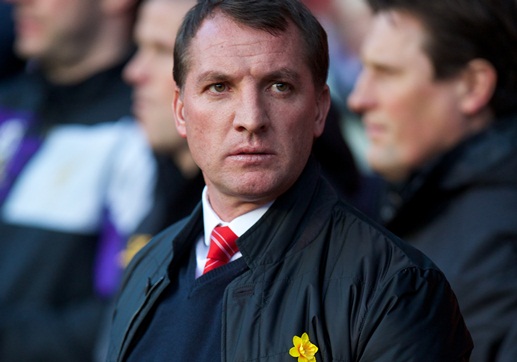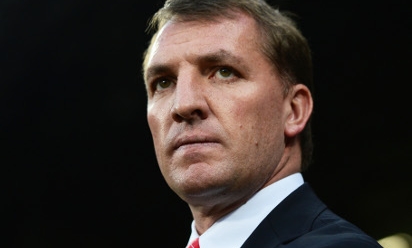BR: From Carnlough to Champions League
Brendan Rodgers today committed his long-term future to Liverpool Football Club, having signed a new contract at Anfield – and here, we chart his story from Carnlough to securing a Champions League return with the Reds…
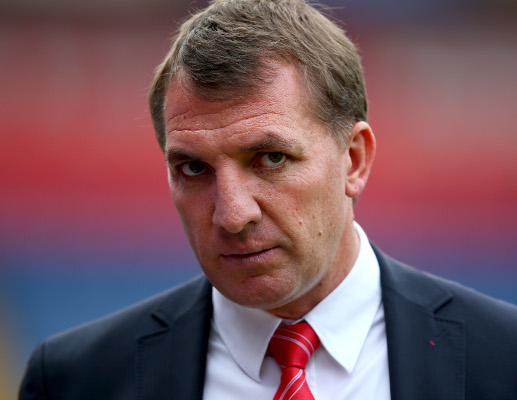
Rodgers was born in Carnlough, Northern Ireland on January 26, 1973 and was educated in Ballymena, where he began playing for the local side as a youngster.
In 1990 he made the switch to England and to Reading; however, his playing career was cut short by injury and Rodgers didn't make a single appearance in English football during his year at the club. Despite having his bourgeoning career ended at such a young age, Rodgers refused to languish or contemplate a life outside of football.
He was keen to return to the game in another role and in 1995 his old team Reading came calling. Rodgers would spend the next nine years as the club's academy manager, honing the talents of players who sometimes were not much younger than himself.
Then, in 2004, the man who had spent almost a decade spotting and nurturing footballing talent was talent-spotted himself by the self-proclaimed Special One.
Jose Mourinho saw the potential in Rodgers and brought him to Chelsea to play a key role in Roman Abramovich's revolution. By 2006 the man from Northern Ireland had impressed sufficiently to rise to the position of reserve team manager at Cobham.
Two years later, Rodgers made the step up to management - but to do so he had to take a step down, to the Championship, and Watford. The Hornets hired him to replace the outgoing Aidy Boothroyd and Rodgers took up the reins from caretaker manager Malky Mackay.
Rodgers steadied the Watford ship after a turbulent start to the 2008-09 campaign and a convincing end to the season saw them finish 13th in the league.
Next for Rodgers was a return to familiar ground. Reading, the club who had signed him as a young player, then again as a young coach, moved for the young manager to take on the role in the dug-out.
Despite a fine start to the season, Rodgers parted company with Reading in December 2009 but seven months later he would make his return to management with Swansea.
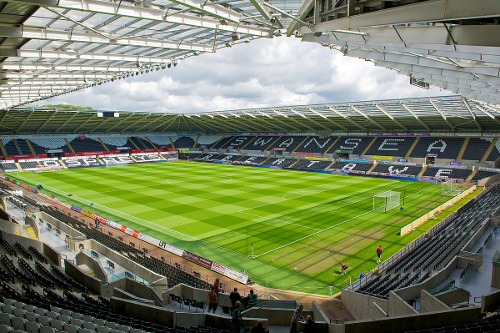
Within a year Swansea were promoted back to English football's top division, becoming the first Welsh team to play in the Premier League since its inception in 1992. Rodgers had guided them to third place in the Championship playing an entertaining brand of possession football.
The Swans beat Nottingham Forrest 3-1 in the Championship play-off semi-finals to set up a meeting with Rodgers' former club Reading at Wembley on May 30, 2011. A Scott Sinclair hat-trick on the day helped them to a dramatic 4-2 win and Rodgers and his men were on the way to the Barclays Premier League.
If anyone thought they'd overachieved in doing so, the Swans were about to go much further in impressing the neutrals. Upon their arrival in the Premier League, Swansea's style of play was a widespread revelation to fresh onlookers.
A fluid, entertaining brand of aggressive, possession football with the emphasis on composure on the ball and support for teammates off it, captivated Premier League audiences from the first game of the season to the last.
Teams had come up to the league before and played well, especially initially. They had pulled off some memorable wins and managed to finish in a respectable position that was at first thought out of reach, as Swansea did when they ended the 2011-12 campaign in 11th place.
But few, if any, teams gained promotion and spent their first season in the league propounding such a cultured style of play in such a convincing manner so consistently. The Swans did so well that pundits compared their footballing philosophy to that of Barcelona.
The campaign had enhanced Rodgers' reputation to such a degree that he was now regarded as one of the finest young managers in football, and so it was no surprise when Liverpool registered their interest in his services after parting company with Kenny Dalglish in the summer of 2012.
Rodgers began his tenure at Anfield on June 1 with the aim of returning the club to the heights of English and European football.
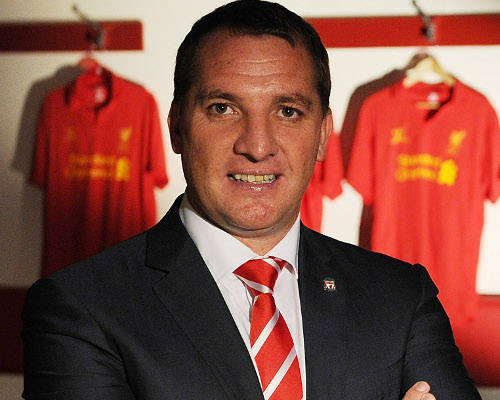
The Reds required six fixtures to secure a first league victory under Rodgers as the Northern Irishman put significant faith in young talents, such as Raheem Sterling, Suso and Andre Wisdom, and stamped his unique style of play on the club.
Rodgers' attacking philosophy brought the very best out of Luis Suarez, who struck 30 goals in all competitions throughout 2012-13, and his sports science team aided skipper Steven Gerrard in almost achieving an ever-present campaign.
Liverpool qualified for the Europa League knockout stages and were buoyed by the astute January signings of Philippe Coutinho and Daniel Sturridge, who helped Rodgers' team climb to seventh before the Premier League season concluded.
The 41-year-old's Anfield project continued with a sprinkling of transfer ins and outs during the summer of 2013 as the boss reshaped his squad ahead of another quest to secure Champions League football.
Back in August 2013, the pre-season chatter was centred primarily on the Champions League and specifically the Reds' chances of working their way back into the Barclays Premier League top four.
Pre-season preparations took Liverpool from Preston to Indonesia, Australia to Thailand and Norway to Dublin, with a fitting testimonial to the captain, Steven Gerrard, held in between. Six consecutive victories, with the concession of just a single goal, were latterly halted with defeat by Celtic in a friendly that proved most pertinent for the return of Daniel Sturridge.
The striker had suffered an injury on international duty at the close of the previous campaign but took advantage of his natural fitness to exceed all medical expectations and become available for selection when the action kicked off on August 17 with what appeared to be a tricky opening encounter against Stoke City at Anfield.
With Luis Suarez unavailable for selection for six fixtures, the Reds' No.15 assumed the goalscoring mantle with aplomb; an exhibition of close control and finishing downed Aston Villa, a clinical brace saw off Notts County in the Capital One Cup and a poacher's header at the far post was enough for Rodgers' charges to narrowly overcome Manchester United on the day that the club paused to acknowledge the 100th anniversary of Bill Shankly's birth.
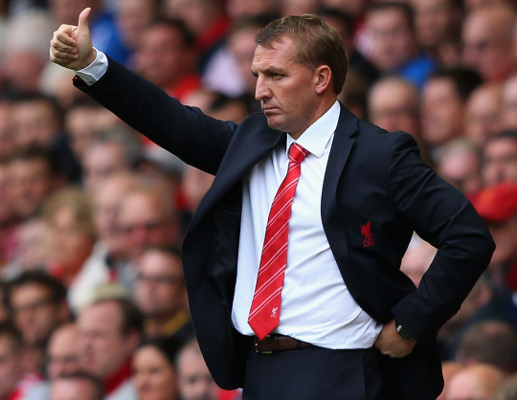
Sturridge and Suarez struck nine of Liverpool's 10 goals between them as Sunderland, Crystal Palace and West Bromwich Albion were successively overturned, while it was a prime example of the fundamental understanding between the prolific duo that salvaged a 2-2 draw for the Reds when they journeyed north to take on Newcastle United in between times.
Runaway leaders Arsenal quelled the Kopites' flow at the outset of November but the month was ultimately highlighted by a Merseyside derby at Goodison Park which captured the attention of the world.
The visitors led twice but eventually found themselves trailing with mere seconds remaining on the clock; step up Sturridge, on as a substitute, who leaped high inside the area to meet a perfectly delivered Gerrard set-piece - a recurring motif in 2013-14 - and nod home an equaliser.
A frustrating away defeat by Hull City followed, but confidence was in no way sapped by the result on Humberside. For, just three days later, Norwich City were obliterated by the Suarez show at Anfield, with the No.7 smashing home a quartet of outstanding strikes, including a breath-taking, 40-yard looping volley that soared into the Kop end net and later scooped the club's Goal of the Season accolade.
From there, Rodgers' men were suddenly unstoppable. Three individual braces were achieved by the forward as West Ham United surrendered, Tottenham Hotspur were totally dismantled at White Hart Lane, and Cardiff City failed to stop the table-toppers, leaving Liverpool at the summit of the Premier League when Christmas presents were being unwrapped on December 25.
Next on the agenda was an imposing double-header in the form of ties at rivals Manchester City and Chelsea in the space of three days. Both encounters ended in a negative result for the Reds, but both in unfortunate circumstances, particularly at the Etihad Stadium, as Rodgers effectively flexed his tactical muscles without due reward. But it would be 119 days before his team were bemoaning a loss in the division again.
An element of revenge was exacted on Hull as 2013 became 2014. It was not just the year that was changing, however, but the set-up of the manager's players; Gerrard was transformed into a controlling, defensive midfielder, Philippe Coutinho evolved into an-all action central warrior, Raheem Sterling began to produce displays which would move his boss to later describe the No.31 as 'the best young player in Europe', and Jon Flanagan was suddenly among the first names on the teamsheet.
And now the goals really started to flow. Any semblance of the Britannia Stadium being a bogey ground for the Reds was destroyed by a five-goal haul and three points, and the league's entertainers were at it again when neighbours Everton conducted the short trip across Stanley Park.
A towering header by the captain paved the way for a Sturridge double and a solo effort by Suarez on a crisp evening when the electric feedback between players and fans took hold.
It was evident on February 8 too, a landmark date in Liverpool's season. The high-flying and in-form Gunners were the visitors, but any notion of a contest at Anfield was eradicated by four unanswered goals inside 20 minutes, as Arsenal struggled to contain the speed, creativity and work-rate of a side that were the definition of what Rodgers had been attempting to implement since his appointment little more than 18 months earlier. The scoreline was 5-1 at the final whistle.
Remarkably, that result heralded an 11-match winning streak, catapulting the Reds from Champions League qualification contention to favourites for the Premier League title. Arsenal, Fulham, Swansea City, Southampton, United, Cardiff, Sunderland, Tottenham, West Ham, Manchester City, Norwich - all beaten. Supporters were now daring to dream as the possibility of a first championship in 24 years loomed larger as the fixture list grew smaller.
Gerrard was at the centre of everything; the winner at Craven Cottage, two converted spot-kicks at Old Trafford, a crucial free-kick over Sunderland, two more nerve-testing penalties to secure three points at the expense of the Hammers - all just the tip of the iceberg in terms of the 33-year-old's contribution.
His was the spine-tingling rallying cry within moments of a stunning 3-2 victory over City, courtesy of Coutinho's sublime decider, that was perhaps the match of the season.
With the level of passion from the club's 'army of supporters' - a fine turn of phrase by Rodgers - reaching a crescendo for the visit of Chelsea, it was therefore the cruellest fate imaginable that the captain should experience the misfortune which presented Demba Ba with an opportunity to put the Londoners in front at Anfield and eventually halt their relentless record with a display that denied the hosts the freedom to express their brilliant best.
Asked to rouse themselves for a trip to a rejuvenated and dangerous Palace, the spark was back and with an hour played at Selhurst Park, the travellers had racked up a 3-0 advantage and sensed further strikes. In a prime advertisement of the strength within the Premier League, however, Tony Pulis' men clawed back, registering three times in 10 scarcely believable minutes to snatch a draw and all but hand control of the title destiny to City.
Nevertheless, the dream of Gerrard collecting the one trophy to so far elude him in a glittering career remained within reach when the football got underway on the season finale. Rodgers' side did their bit, recovering from a first-half deficit to ultimately down Newcastle 2-1.
But the news filtering through from the Etihad Stadium was negative - City had succeeded in their objective and were crowned champions. As the Reds set off on a deserved lap of honour, though, there was an unmistakable air of positivity inside Anfield.
